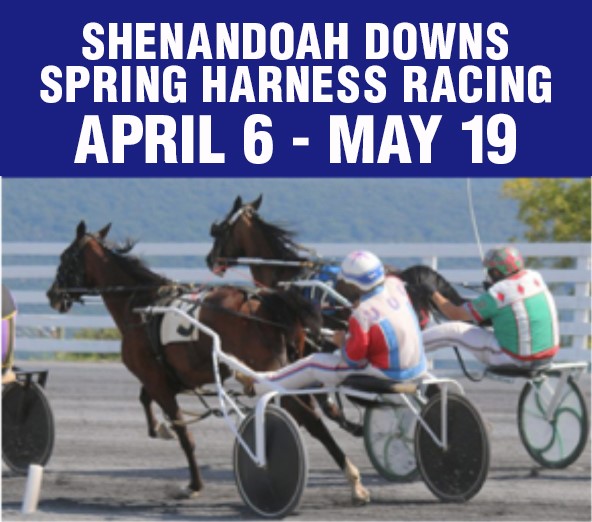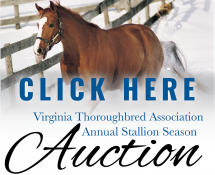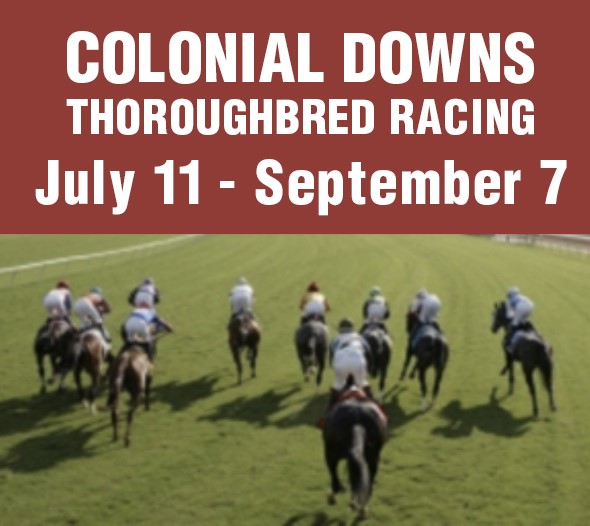The following appeared at theracingbiz.com on April 8 and was written by Nick Hahn.
The winds of change are blowing in horse racing, and in Virginia, at least, the prevailing winds are out of Kentucky.
Churchill Downs CEO Bill Carstanjen blew into town to meet with the Virginia Racing Commission April 6 and, at an at-times spirited public question-and-answer session, outlined a vision for the future that’s sure to please many stakeholders but may cause angst in other quarters.
Churchill Downs, Inc. earlier this year entered into an agreement to purchase Colonial Downs and all of its associated Rosie’s properties, as well as additional properties owned by Colonial parent company Peninsula Pacific in Iowa and New York. The deal is expected to close by year end.
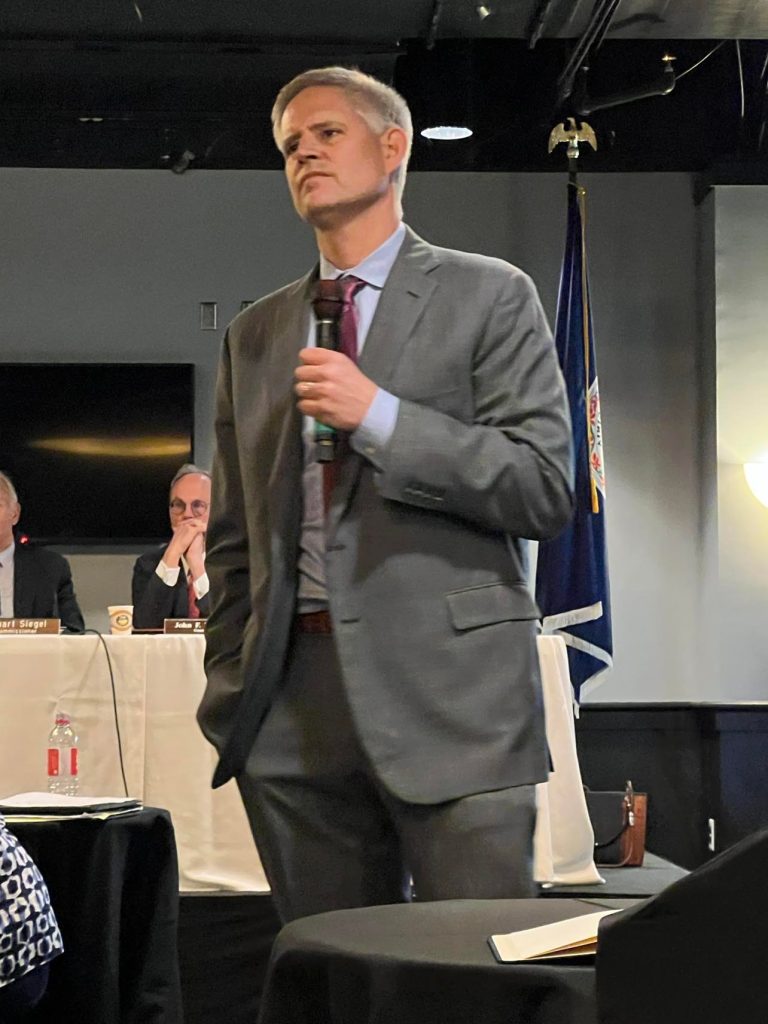
Carstanjen’s appearance provided some of the first public candid comments to Virginia stakeholders and the Commission on the pending sale – a sale that caught many Virginia horsemen by surprise.
“Virginia has a chance to be reborn,” Carstanjen told the gathering. “In Virginia, this is a really good framework and structure and foundation from which to build on.”
Under Virginia’s law, purses are powered in large part by so-called historical horse racing machines, which are essentially slot machines but powered by the results of past horse races. The law permits up to 5,000 machines around the state, under various conditions, and for each 100 deployed, the licensee is required to run one race day.
Colonial Downs is slated to run 27 days in 2022, up from 21 a year ago. Carstanjen intimated that the number could grow, and quickly.
“This is an accelerated change, accelerated growth environment,” he said, later adding, “You’ll see us try different things. You’ll see us push the envelope because we’re very focused on staying relevant, not just in the wagering world but in the entertainment world.”
Carstanjen told the Commission that, in broad strokes, the company’s number one goal would be “to get all these [HHR] machines deployed,” which would increase the flow of purse revenue and allow for the growth in race days. With 5,000 machines deployed, the law will require 50 days of live racing.
For one thing, Carstanjen said, the company will be looking “where we need to bifurcate the meet.”
Why a bifurcated meet? One obvious reason would be to give the turf course a rest.
Another reason: “We want to look at [Kentucky] Derby prep races so that we can have a Virginia horse going to the Derby.”
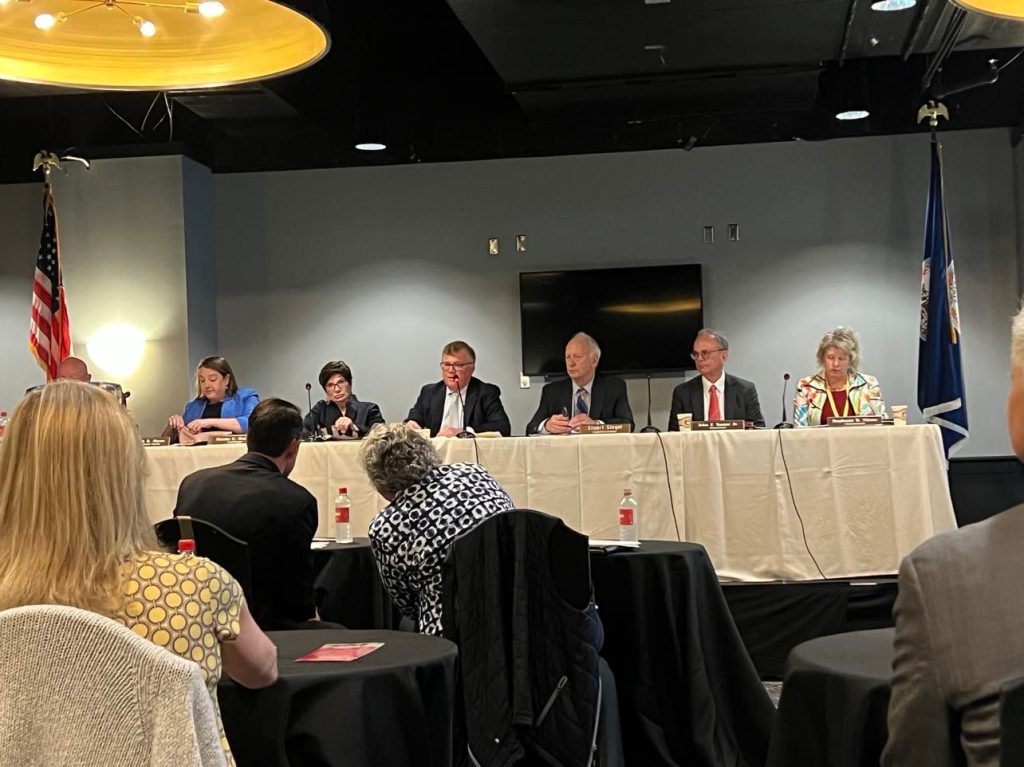
Since Colonial’s rebirth in 2019, most of the purse money has gone to overnight races. While purses for those races are higher than they are in other regional tracks, stakes purses are substantially similar. Carstanjen sees bolstering the stakes program as an important goal.
“We want to look at stakes races that we can move here from our other facilities and our available stakes race program,” he said. “Let’s turbo-charge the racing here.”
Carstanjen said Churchill looks at racing not just as a wagering product but also as entertainment. The buzz around the Kentucky Derby, he said, is driven not so much by passionate racing fans and bettors as by casual fans who pay attention to the Triple Crown but perhaps not day to day racing. And while casual fans aren’t worth as much, financially speaking, as are hardcore players, “There’s a lot more casual fans out there than there are hardcore horseplayers.”
“We have to give the community in this region an opportunity to experience horse racing as entertainment,” he explained. “So you will see us reach into our bag of tricks from Derby to build interest here.”
One of the state’s big successes in recent years has been the Virginia Certified Residency Program. Under that program, horses that spend at least six months in the Commonwealth before the end of their two-year-old year earn their “developers” – the person who owned them during their period of residency – bonuses when they win anywhere in the Mid-Atlantic.
Virginia horsemen credit the program with filling up their barns once again. Some 3,500 horses have gone through the program to date.
But Carstanjen said it’s time to start thinking about changing the program.
“I don’t like your purse construct where you’re paying purse money to horses that are winning out-of-state,” he said. “Now that you’re running race days here, it’s puzzling why you’re paying horses to win races in a different jurisdiction. That’s your purse money that should be invested in your racing program.”
Carstanjen wants to direct those funds to horses that win in Virginia, and to promoting the Virginia breeding industry and the growth of a critical mass of Virginia-breds that would book fields with increasing racedays at Colonial Downs. That would promote the development of the “equi-structure” of stallions, layup facilities, local feeds and other supportive services.
“All programs started as the right thing for the moment, but we’re going to be on an accelerated development schedule, so we have to be looking at these programs to make sure that we’ve got what’s best as we grow,” continued Carstanjen. “If you just stand around with a Virginia-certified program, that’s all you’ll ever have….it will require change. The incentive programs that are in place right now are increasingly designed for the past. They are not designed for the future.”
In the minds of many since the announcement of the purchase of Colonial Downs has been the demise of the Churchill-owned Arlington Park last year. Carstanjen addressed that question without prodding.
“Racing doesn’t work everywhere,” he said. “Racing is something that can get screwed up and it’s been screwed up in a whole bunch of jurisdictions, and it got screwed up in Virginia for a while. Illinois is an example of where racing is really screwed up, and it doesn’t work well.”
Carrying the weight of a year-round racing season has never been a burden in Virginia racing. While in years past that might have seemed a liability, Carstenjen perhaps sees it as an asset.
For the longest time Virginia was referred to as a breeding state and not a racing state. Since Colonial opened in 1997, that view has largely reversed. Either way, the state doesn’t carry the burden of memories of long-gone “glory days,” or expectations that a very different future will somehow become like the past.
By design or accident, Carstanjen likes the opportunity he sees in Virginia.
“In Virginia there been some up and downs, and Virginia struggled for a while,” he said. “But then it put together a framework that’s going to stand the test of time off into the horizon, as far as the eye can see.”



